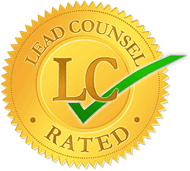After experiencing a slip and fall accident, many people tend to underestimate the severity of their injuries. They might think they’re just a little sore or stiff, assuming they’ll recover in a few days without much medical intervention. However, slip and fall injuries can often be more serious than they initially seem. If you’ve been injured, following your doctor’s advice is critical—not only for your health but also for your potential personal injury claim. Read this blog and speak with a seasoned Bronx slip and fall lawyer to learn why it’s so important to follow your doctor’s advice closely after a slip and fall accident.
What Happens If You Don’t Follow Your Doctor’s Advice After a Slip and Fall?
If you fail to follow your doctor’s prescribed treatment plan, you could risk worsening your injury or prolonging the healing process. It’s easy to think, “I’ll just skip physical therapy,” or “I don’t need to take this medication,” but neglecting these steps can have serious consequences. Your body needs time and proper care to heal. For example, what might seem like a minor sprain could actually lead to chronic pain or long-term mobility issues if not treated correctly.
From a legal perspective, ignoring your doctor’s advice could also damage your personal injury claim. If you’re pursuing compensation for your injuries, the other party’s insurance company may argue that your failure to follow medical advice contributed to your prolonged suffering. They might claim that your injuries were not as serious as you initially reported or that your failure to adhere to treatment worsened your condition. This could lead to reduced compensation—or no compensation at all.
How Does Medical Treatment Affect Your Personal Injury Case?
Medical documentation is a cornerstone of any personal injury case. When you seek treatment, your doctor will make a record of your injuries, symptoms, and prescribed treatment plan. This documentation serves as critical evidence that links your injuries to the slip and fall accident. If you skip follow-up appointments, ignore treatment, or fail to keep a consistent record of your recovery, this evidence could weaken your case.
A strong personal injury claim relies on showing that you took reasonable steps to recover from your injuries. Your medical records help establish the timeline of your injury and recovery, which can prove vital when negotiating with insurance companies or presenting your case in court. Following your doctor’s advice also demonstrates that you did everything in your power to recover, strengthening your argument for full compensation for your medical bills, lost wages, and pain and suffering.
How Can Following Doctor’s Orders Impact Long-Term Recovery?
Slip and fall injuries can range from minor bruises to more serious conditions like concussions, fractures, or even spinal cord damage. Some injuries may not present immediate symptoms, but could develop into chronic conditions if left untreated. By adhering to your doctor’s advice, you not only improve your chances of a faster recovery but also reduce the risk of long-term complications. Physical therapy, for instance, is often recommended for soft tissue injuries or fractures, and skipping these sessions could limit your mobility or lead to chronic pain.
In short, following your doctor’s advice is about more than just recovering from the immediate injury—it’s about setting yourself up for long-term health and stability.
CONTACT OUR EXPERIENCED NEW YORK CITY FIRM
Our entire legal team is dedicated to providing the advice you need and the personalized attention you deserve. If you have been injured due to another party’s negligence, call (212) 421-0300 or fill out our contact form to schedule a free consultation with a New York City personal injury lawyer. You may be entitled to financial compensation, which can help you on your road to recovery.











